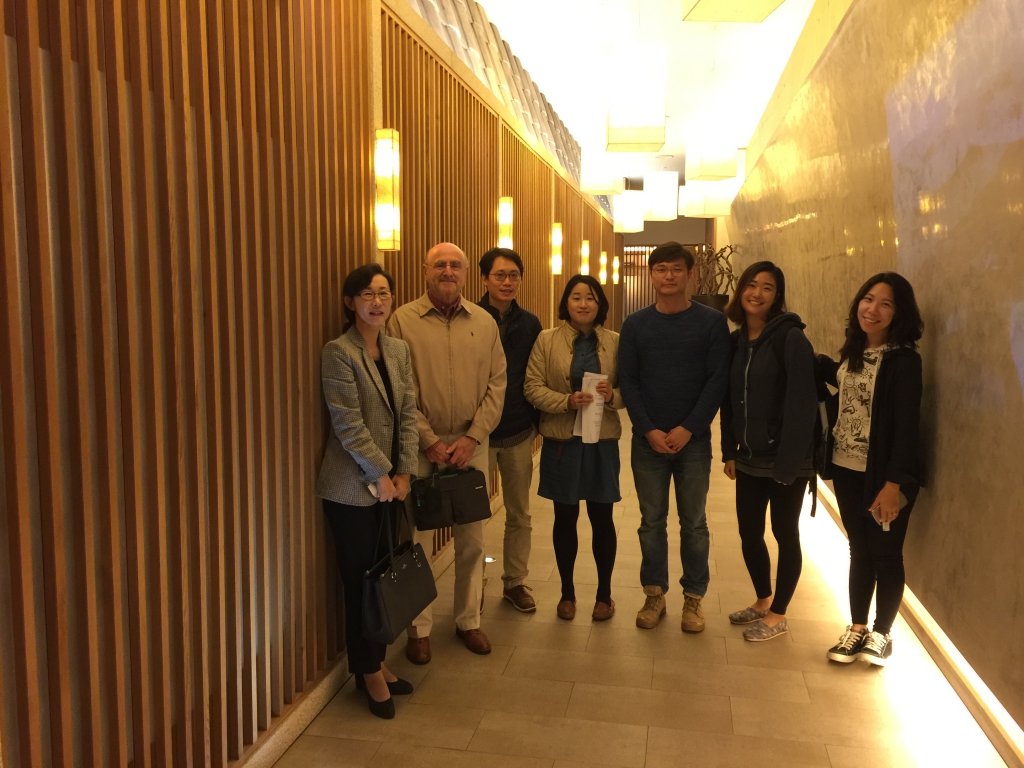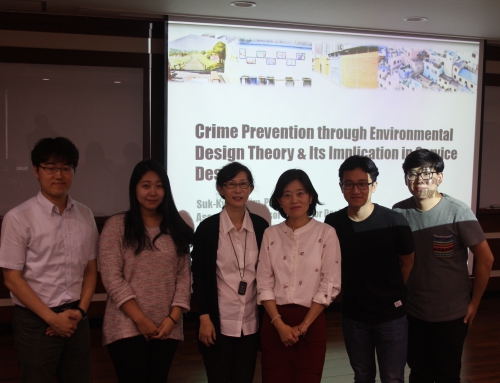One of the distinguished professors in the domain of Design Computing, Prof. John Gero visited our Lab and give us a special lecture.
- Purpose : Special Seminar on Situated Computation: Applications in Design.
- When : Monday, October 17, 2016. 16:00 – 18:00(it depends on lecturer’s schedule)
- Where : Paik Nam June Hall at KAIST N25, #3229
- Speaker : John S. Gero (University of North Carolina, USA)
- Host : BK21+ Postgraduate Organization for Content Science at KAIST
- Organizer : Prof. Ji-Hyun Lee (CT, KAIST)
Title: Situated Computation: Applications in Design
Abstract: Situated cognition, an emerging area of cognitive science, holds that, apart from genetics, cognition is founded on: • an organism’s interactions with its environment, • an organism’s ability to construct memories, and • an organism’s structuring of its past experiences into situations that give meaning to what is currently experienced and build expectations of what is being sensed. The first half of the seminar develops a set of principles for situated computation based on situated cognition. The five principles relate to: effect; ordered temporality; locality; interaction and ontology. These provide a different set of principles than ordinary computation, principles that allow for designing to be more readily modeled computationally. The remainder of the seminar presents the application of these principles through computational social science implementations, using cellular automata and multi-agent systems, to study: • social influence on human behavior; • team behavior; and • creativity and emergence.
Presenters’ Bio: John Gero is Research Professor in Computer Science and Architecture at UNCC, Research Professor in Krasnow Institute for Advanced Study, and Research Professor in Computational Social Science at George Mason University. He was formerly Professor of Design Science, University of Sydney. He has edited/authored over 50 books and published over 650 research papers. He has been a professor of computer science, cognitive science, architecture, civil engineering, and mechanical engineering at MIT, UC-Berkeley, UCLA, Columbia and CMU in the USA, at Strathclyde and Loughborough in the UK, at INSA-Lyon and Provence in France and at EPFL-Lausanne in Switzerland. His research has been funded by NASA, NSF, DARPA, IBM and ARC.




